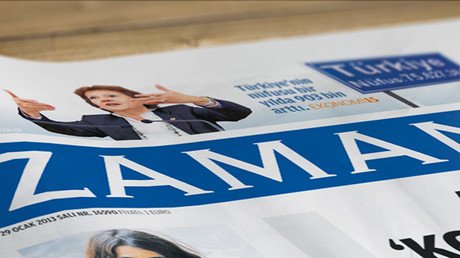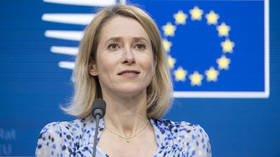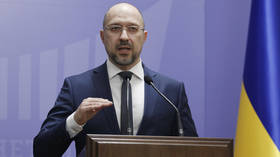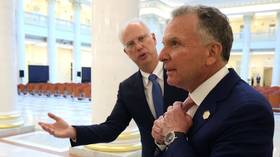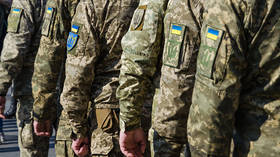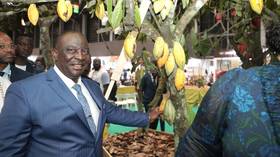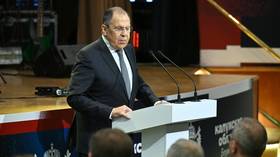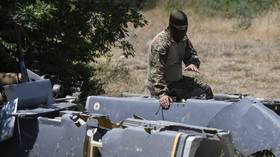Turkish Cihan news agency ‘seized’ by government
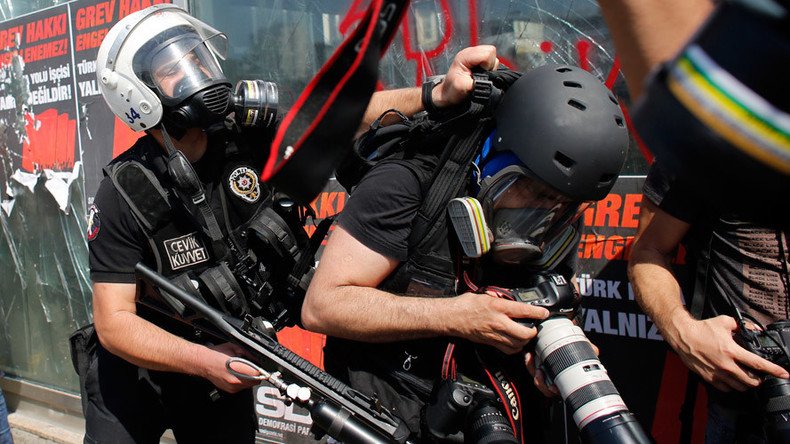
Despite criticism from European officials over its crackdown on opposition media, the Turkish government has reportedly taken control of another news agency. It comes days after the seizure of the popular opposition newspaper Zaman.
The Cihan news agency is believed to be associated with US-based Muslim cleric Fethullah Gulen, a foe of Turkish President Recep Tayyip Erdogan.
On Monday, a statement was posted on its website saying that an Istanbul court would appoint an administrator for the news source. The ruling was made at the request of prosecutors investigating Gulen, who is allegedly suspected by the Turkish government of plotting a coup.
The development came just days after the popular opposition newspaper Zaman was seized by the Turkish government in a similar way. Both the news agency and the newspaper are part of the Feza Gazetecilik media company.
Cihan reporter Ibrahim Varlik told RT that his organization was the largest private news agency in Turkey, and its takeover now leaves state-owned Anadolu as the only source of information for Turkish people.
Cihan has also been the only independent monitor of country’s election process since 2005, the reporter added.
“This monitoring was very important not only in terms of showing the results, but also preventing possible fraud in the election… protecting the people’s rights and democracy. But from now on only state agency can monitor the elections – if there’ll be any fraud most probably they [the Turkish people] will never hear about that,” Varlik stressed.
US State Department spokesman John Kirby condemned the Cihan take over, calling it “just another example of an unnecessary crackdown on journalism,” Reuters reported.
The development came just days after the popular opposition newspaper Zaman was seized by the Turkish government in a similar way. Both the news agency and the newspaper are part of the Feza Gazetecilik media company.
Other media outlets and businesses affiliated with Gulen's movement were taken over last year as the investigation was underway.
The crackdown was condemned by rights groups and several European politicians, although criticism was muted from European leaders, who were negotiating on Monday a deal with Turkey on handling the refugee flow into the EU.
“The press must be free everywhere, including everywhere in Turkey,” said French President Francois Hollande, one of the few to make a public statement on Turkish actions. He added that the EU’s co-operation with Turkey “doesn’t mean we accept whatever Turkey does.”
Charles Michel, the Belgian prime minister, said media freedom was “untouchable,” while his Luxembourg counterpart Xavier Bettel said: “It can’t be that just because of the migration crisis we throw other values out of the window, like freedom of the press.”
Turkey, which successfully negotiated a doubling of a multibillion-dollar EU aid package to tackle the refugee crisis, as well as a promise of visa-free travel, says it has the right to take legal action against journalists.
"Turkey has the right to question those who take part in a clear coup attempt, whether economic or journalistic, against an elected government," Prime Minister Ahmet Davutoglu said while on a trip to Tehran.
"There is a legal process examining charges of political operations, including funneling illegal monies. We have never intervened in the legal process," he said.
Critics of Ankara say it is using the refugee crisis to shield itself from European criticism.
“Right now, they need Erdogan,” said Selahattin Demirtas, the Kurdish leader of the HDP (People’s Democratic Party).
“He uses the refugee crisis to blackmail the EU,” he added. “This crisis should not become a business deal.”
Erdogan and Gulen used to be political allies, but became bitter foes in 2013, when police officials and prosecutors reportedly sympathetic to Gulen opened a corruption investigation into Erdogan's inner circle. The investigation was quashed, but resulted in a cabinet reshuffle and mass protests in Turkey.
